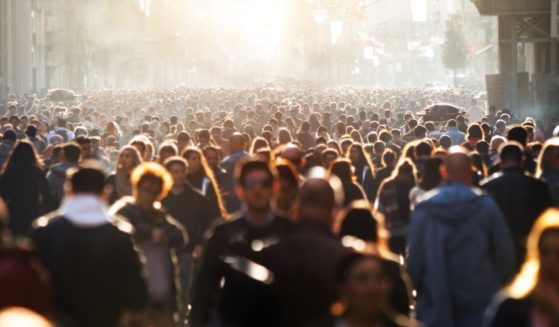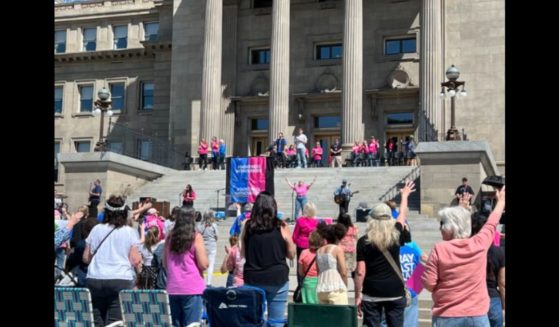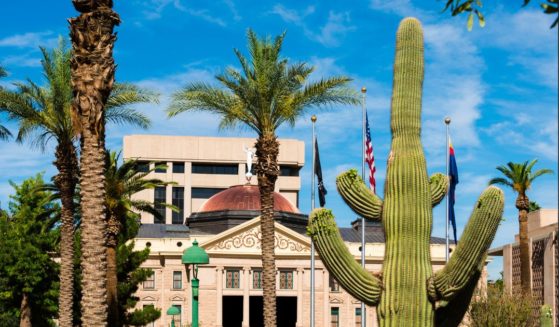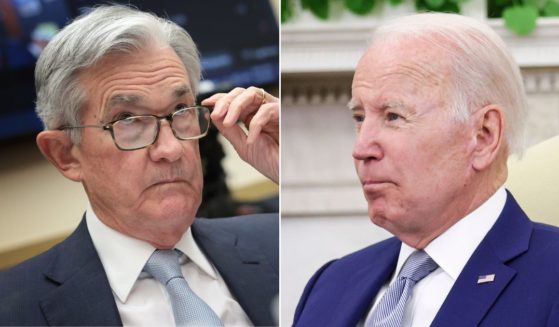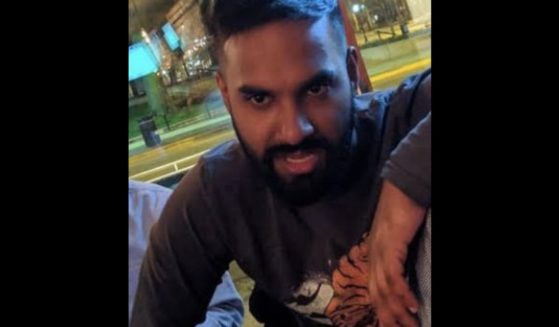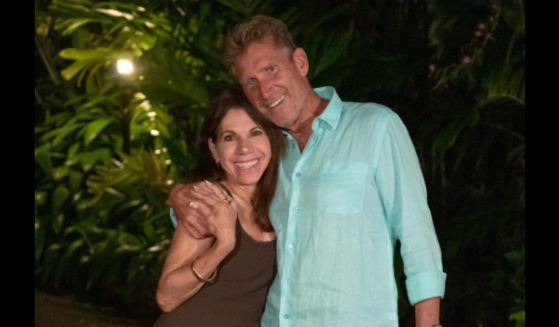The Berlin Wall and US Border Wall are Not the Same, AOC. Take It from Someone Who's Been There
To hear freshman Rep. Alexandria Ocasio-Cortez proclaim last week that the U.S. border wall with Mexico “is like the Berlin Wall” made me think of a line from the 1988 vice presidential debate between GOP candidate Sen. Dan Quayle and Democratic Sen. Lloyd Bentsen.
Bentsen, 67 at the time, famously turned a phrase during the contest, when the 41-year-old Quayle tried to argue he was prepared to be president, pointing to America’s youngest president, John Kennedy.
“Senator, I served with Jack Kennedy. I knew Jack Kennedy. Jack Kennedy was a friend of mine. Senator, you’re no Jack Kennedy,” Bentsen said. The Texan had been elected to the House of Representatives two years after JFK in the late 1940s.
Incidentally, former President Ronald Reagan would employ that phrasing to great effect four years later joking at the 1992 Republican National Convention about Democrat candidate Arkansas Gov. William Jefferson Clinton: “I knew Thomas Jefferson … Governor, you’re no Thomas Jefferson.”
On Friday, Ocasio-Cortez once again made her thoughts known on President Donald Trump’s border wall plans in an Instagram Live video, saying, “I think it’s a moral abomination. I think it’s like the Berlin Wall.”
Socialist Rep. Alexandria Ocasio-Cortez (D-NY) says the wall is “a moral abomination. I think it’s like the Berlin wall”
The Berlin wall was built to stop East Germans from escaping into West Germany
The goal of the border wall is to stop illegal immigration and trafficking pic.twitter.com/MbFWitkFBi
— Ryan Saavedra (@RealSaavedra) February 18, 2019
In the spirit of Bentsen and Reagan, I would say to Ocasio-Cortez, “Congresswoman, I served in the Army when the Berlin Wall stood. I went to Berlin in 1988. I visited East Berlin going through the communist-controlled checkpoint. The U.S. border wall is not like the Berlin Wall.”
“Oh, and socialism does not work.”
Both Kennedy and Reagan rightly argued the Berlin Wall was an immorality, because it permanently divided the nation of Germany between freedom and tyranny.
Germany had been partitioned into sectors of governance at the end of World War II in 1945. The American, British and French sectors, representing two-thirds of the country, became West Germany, while the one overseen by the Soviets was forced to form the separate nation of East Germany.
Over the next 16 years, approximately 3.5 million people fled from East Germany to West, or 20 percent of the country’s population.
In 1961, the East German government built the Berlin Wall to stop the mass exodus of its citizens. After the wall went up, the number dropped drastically to 5,000. Sadly, at least 171 were killed trying to make the escape.
In his “Ich Bin Ein Berliner” speech delivered in West Berlin in June 1963, Kennedy observed, “Freedom has many difficulties and democracy is not perfect, but we have never had to put a wall up to keep our people in, to prevent them from leaving us.”
In one of the most memorable moments of his presidency, Reagan demanded, with a sense of moral indignation, in front of Berlin’s Brandenburg Gate in June 1987, “General Secretary Gorbachev, if you seek peace, if you seek prosperity for the Soviet Union and Eastern Europe, if you seek liberalization: Come here to this gate! Mr. Gorbachev, open this gate! Mr. Gorbachev, tear down this wall!”
Visiting the city as a West Point cadet a year later in June 1988, I vividly recall the difference between thriving capitalist West Berlin and the communist/socialist East side of the city.
Before going through Checkpoint Charlie to the East, I converted some of my West German to East German marks, but found nothing worth buying.
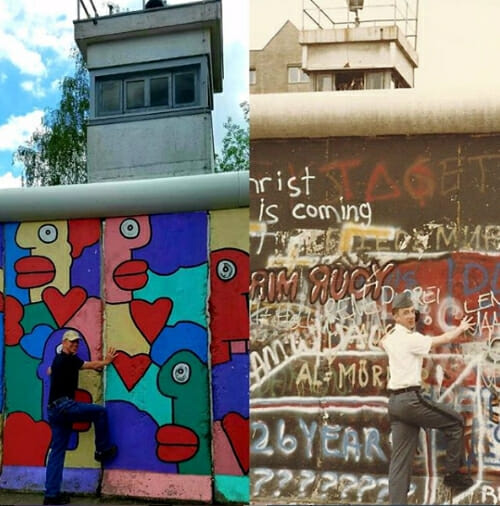
I remember riding a Ferris wheel at night looking over to the East and seeing little activity and relatively dim lighting. Meanwhile, on the West side, there was a literally a fireworks show and multi-colored city lights, with people roaming the streets everywhere: in a word, LIFE!
Liberty-loving people the world over celebrated in November 1989 when the Berlin Wall came down and within months Germany began the reunification process.
Apparently, the lesson politicians like Ocasio-Cortez and former Texas Rep. Beto O’Rourke took from that moment is that all walls are bad. O’Rourke even mimicked Reagan, calling on the U.S. to tear down its current barriers along the Mexican border.
Despite Ocasio-Cortez’s and O’Rourke’s protestations, walls are not immoralities. Every country has the right to know who and what is coming across its borders, and a wall, with designated entry points, is one way to facilitate that screening process.
Prior to the construction of fencing in San Diego and other places along the border, over 1 million migrants were apprehended trying to enter the U.S. illegally each year, according to the U.S. Border Patrol.
That number dropped by more than half after the fences went up. For example in San Diego, the total illegal crossings came down from 162,000 people at its peak to 26,000 in 2017.
Trump rightly argued that it would be a moral failure on his part not to do all he can to stop violent criminals, gang members, illegal drugs and human traffickers from entering into the U.S.
America is one of the most open countries in the world. Over one million people are allowed to immigrate legally to the U.S. each year, which has not changed under Trump. No other nation even comes close to that total.
I returned to Berlin for the first time since 1988 last summer and was glad to witness firsthand the city reunited and thriving. The only portions of the Berlin Wall still standing were relegated to museums and monuments.
That wall, trapping people in tyranny, was an immorality. Our southern border wall, requiring people to enter the U.S. legally, is not.
The views expressed in this opinion article are those of their author and are not necessarily either shared or endorsed by the owners of this website. If you are interested in contributing an Op-Ed to The Western Journal, you can learn about our submission guidelines and process here.
Truth and Accuracy
We are committed to truth and accuracy in all of our journalism. Read our editorial standards.

